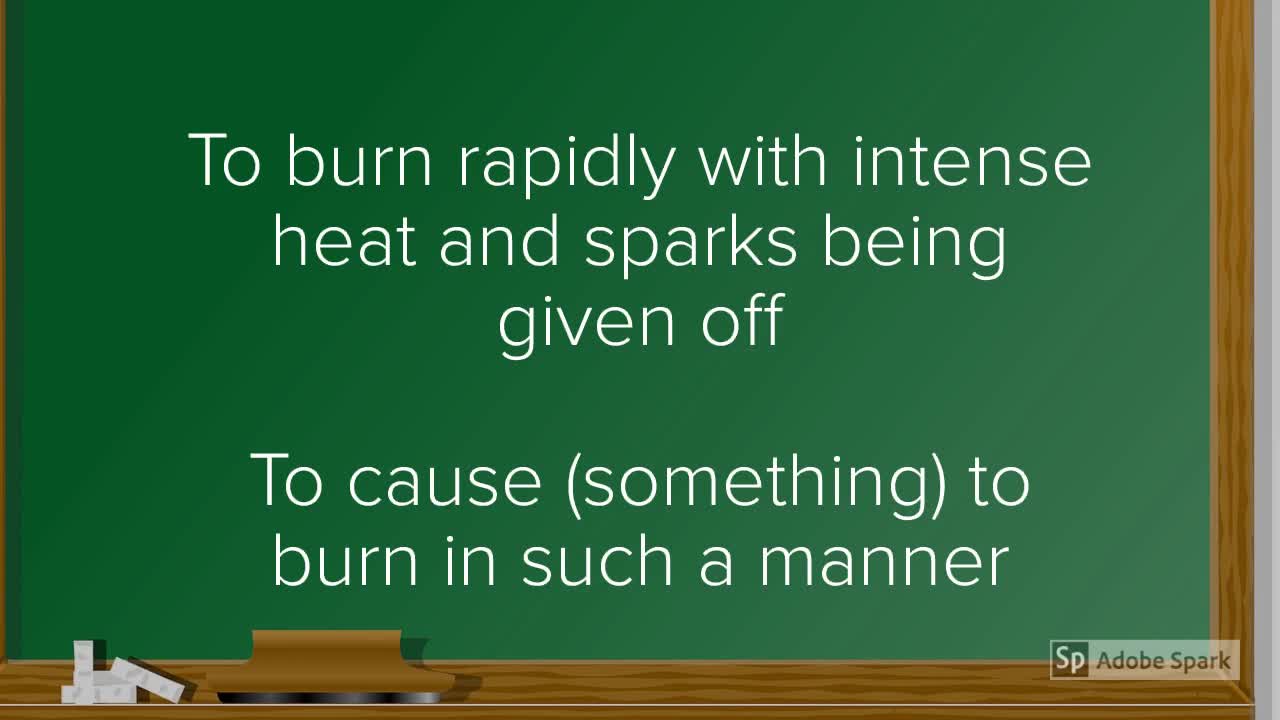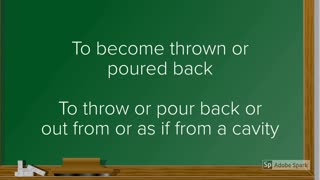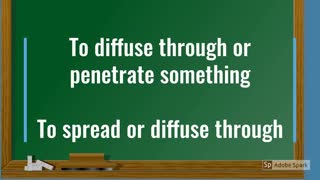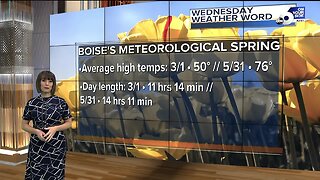Premium Only Content

Word of the Day : Deflagrate
Did You Know that the word Deflagrate combines the Latin verb flagrare, meaning "to burn," with the Latin prefix de-, meaning "down" or "away." Flagrare is also an ancestor of such words as conflagration and flagrant and is distantly related to fulgent and flame. In the field of explosives, deflagrate is used to describe the burning of fuel accelerated by the expansion of gasses under the pressure of containment, which causes the containing vessel to break apart. In comparison, the term detonate (from the Latin tonare, meaning "to thunder") refers to an instant, violent explosion that results when shock waves pass through molecules and displace them at supersonic speed. Deflagrate has been making sparks in English since about 1727, and detonate burst onto the scene at around the same time.
Build your vocabulary! Get Word of the Day in your inbox every day.
Examples
Certain materials, such as black powder, will deflagrate rather than cause a violent explosion when they are ignited.
"Classification of substances by their sensitivity to impact and friction is particularly important for the handling of explosives. Some explosives are known to detonate on impact, whereas others will only deflagrate." — Jacqueline Akhavan, The Chemistry of Explosives, 2004
A robust vocabulary improves all areas of communication — listening, speaking, reading and writing. It Improves Reading Comprehension. It’s Important to Language Development and Communicating Ideas.
4 Expressing Yourself in Writing and Having a good vocabulary to draw from can help you write more effectively. Students need to use a more formal tone when writing – not conversational language – and to do that, they need a richer vocabulary to tap into those words we don’t use when we speak provides Occupational Success in your affairs.
-
 0:30
0:30
OddManOut
5 years agoWord of the Day : Regurgitate
253 -
 0:30
0:30
OddManOut
5 years agoWord of the Day : Alienist
256 -
 0:29
0:29
OddManOut
5 years agoWord of the Day : Pandiculation
95 -
 0:30
0:30
OddManOut
5 years agoWord of the Day: Peccant
449 -
 0:39
0:39
OddManOut
5 years agoWord of the day Vanilla
163 -
 0:29
0:29
OddManOut
5 years agoWord of the Day : PREMEATE
119 -
 3:04
3:04
AFV
5 years agoBabies First Word
1.44K2 -
 1:21
1:21
KIVI
5 years agoRachel Garceau's Wednesday Weather Word: WIND
15 -
 1:24
1:24
KIVI
5 years agoRachel Garceau's Wednesday Weather Word: Vernal Equinox
19 -
 1:48
1:48
KIVI
5 years agoRachel Garceau's Wednesday Weather Word: Meteorological Spring
18